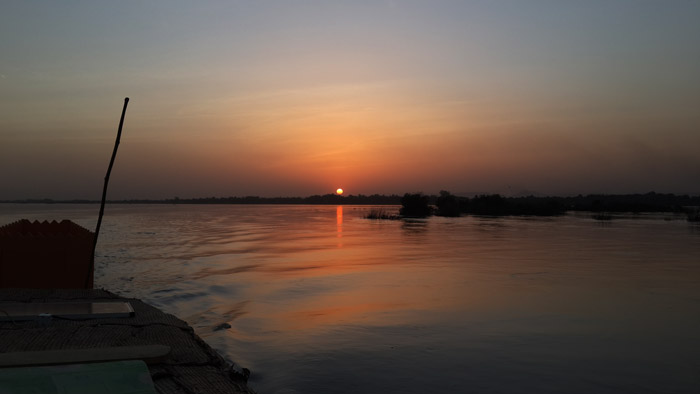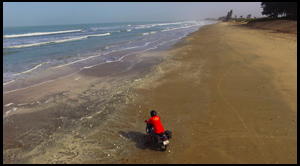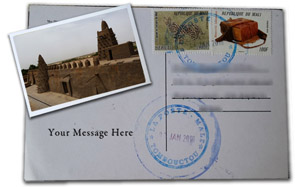Assuming you haven’t been living under a rock, you are aware that a Radisson Blu hotel was attacked in Bamako a couple of weeks ago. I am not going to talk about the attack. It was awful. I am grateful that I did not know anyone involved.
International media tuned into the attack an hour or two after it began. The story quickly went from a few lines on the breaking-news-ticker to full blown round-the-clock-coverage. A week after the Paris attacks, a potential hostage situation at Bamako’s most luxurious hotel was a story that apparently merited a level of intense reporting that Mali had not seen since the French intervened in 2013.
I had sent out a few tweets more or less saying that I was receiving messages from folks about an ongoing attack at the hotel. I also mentioned that the Radisson was one of the few hotels in Bamako that was approved by the UN to house their personnel.
Within a few minutes, I was receiving tweets and direct messages from reporters who wanted to speak with me on the phone. Some asked for pictures or video of the scene. Others wanted me to go on air and describe what I was seeing and hearing around me. I explained repeatedly that I was nowhere near what was happening. In fact, the scene outside my door was a few women sweeping, a pair of chatty birds and an ambling donkey cart.
I also received several phone calls from France and the UK. It would appear my number is still in a database somewhere for certain news organizations looking for a sound bite from an expat in Bamako. I imagine this has something to do with the coup in 2012, when I willingly gave out my number and often found myself on air trying to provide insight into a situation on which I had no insight to provide. I would not repeat the same mistake this time.
While the Radisson attack was happening, we were tuned into international news stations via DSTV, a South African satelitte TV company. Mali state television was slow to react – they usually are, unfortunately – and it took several hours before ORTM had a scrolling line of info at the bottom of the screen about the attack. Later, they would provide the only images of the rescue operation (international media picked up these images, and some of them actually blurred out the ORTM logo).
Several hours after the initial coverage of the attacks began, many of the international stations were now calling up a variety of experts to discern what the attacks meant. Now, I understand the hunger for eye witness accounts and on-the-ground details when an attack like this is transpiring. I was not angry at the people contacting me. They were doing their jobs, and I simply did not have anything to contribute.
What is frustrating – and in many cases I would use a stronger word (say, infuriating) – is the hunger for speculation and broad theories that neatly situate these attacks in some kind of global context. At one point, we saw a friend, Andrew Lebovich, on SkyNews. Andrew was providing responsible commentary and making a strong effort to avoid any speculation on the attacks. The host of the show was clearly after something sexier and so was the other guest.
Andrew and Gregory Mann co-authored a piece after the attacks (you can read it in its entirety here), and I find this excerpt to be particularly relevant:
Ultimately, we may never have an irrefutable explanation of the strategy behind the attacks in Bamako and in Paris. We might never even be sure whether and how they are related. Journalists want clear-cut answers, but historians are used to the idea that evidence is partial and incomplete, or that what evidence we do have may be intentionally misleading. This is all the more true in the Sahara, where reliable information is hard to come by, and where every narrative has a counter-narrative. As analysts, we have to be able to accommodate such uncertainty. As citizens of the world, we have to live with it.
And that says it much better than I can. We may indeed have more information on these attacks now and in the weeks and months to come. With news that AQIM and Al-Mourabitoun have re-united, the picture may become clearer, but I will leave that to the real experts. It is this on-the-fly speculation – while the event is still happening, no less! – that is absurd and ultimately destructive, as it can quickly shape viewpoints on an already volatile subject.
The same Washington Post blog that hosted that piece also ran several other important reads, one from my friend Jaimie and her research associate Sidiki Guindo, and another from Susanna Wing.
Jaimie and Sidiki’s piece takes a look at concrete data resulting from research she and her associates have conducted over a number of years in Mali. It is one of the few articles you will read that actually references Malian voices from throughout the country on a number of subjects, establishing a context that many “experts” do not even address. Read it here.
Susanna’s piece is also a good read for context of the Bamako attack. Check it here.





0 Comments